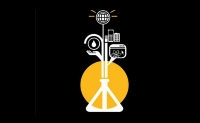Science Diplomacy
Principal Investigator:
Philip Seib
Past Contributing Researcher:
Matthew Wallin
Events:
Science Diplomacy Conference
Resources:
Science Diplomacy Media Monitor Report
Publication: Science Diplomacy and the Prevention of Conflict
The primary purpose of this research project is to broaden the understanding of science diplomacy in the context of the wider field of public diplomacy. Science diplomacy provides an opportunity for scientists and researchers around the world to work collaboratively on projects that address humanity’s most pressing problems, including sustainable development, managing water resources, peace preservation, and fighting disease and hunger. By studying and discussing contemporary and historical examples of science diplomacy in action, we begin to assemble a conceptual framework through which science diplomacy can be applied to resolve current and future foreign policy challenges.
Indiana Senator Richard Lugar has called science diplomacy "a vital component of our nation’s public diplomacy." For the United States, the realm of science and technology remains one of the most attractive elements of American society. Government recognition of this component provided the impetus for science diplomacy throughout the Cold War, and has more recently resulted in the creation of a science envoy program, announced by Secretary of State Clinton on November 3, 2009. In this announcement, Secretary Clinton proclaimed that these envoys will "travel to North Africa, the Middle East, South and Southeast Asia to fulfill President Obama’s mandate to foster scientific and technological collaboration."
In February 2010, the USC Center on Public Diplomacy hosted a conference on Science Diplomacy and the Prevention of Conflict to explore the merits and challenges of science diplomacy - not solely as conducted by the United States, but across the world. Our conference showcased science diplomacy practitioners and researchers who discussed their individual experiences, current and past projects in the field of science diplomacy, and their hopes for the future of the practice. By hosting a forum for experts in this field to share ideas, we move toward a better understanding of the potential and limits of science diplomacy, and consequently, how, when, and where it can be used effectively as public diplomacy.
Tags








